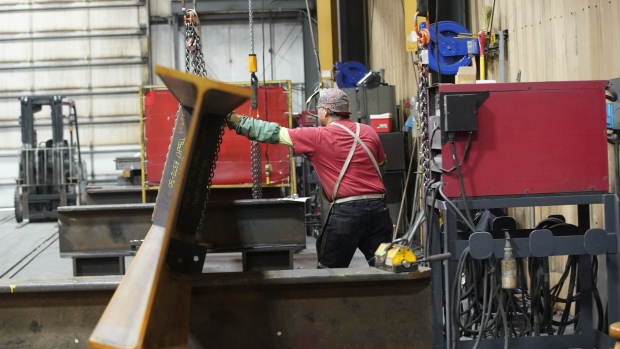May 28, 2021
EU Draft Sets Out Roadmap to Consign U.S. Trade Tensions to Past
, Bloomberg News

(Bloomberg) -- When President Joe Biden travels to Brussels next month, the European Union and the U.S. will commit to trying to end the trade conflicts that have tainted the transatlantic relationship while also pledging to work toward a sustainable global recovery.
The allies will aim to resolve a long-running aircraft dispute by July 11, reach a global consensus on a new tax system by mid-2021 and remove punitive tariffs on steel and aluminum exports by the end of the year, according to a copy of a draft statement obtained by Bloomberg.
The EU is keen to reset relations with the U.S., which soured over the last four years when the Trump administration undercut multilateral organizations such as the World Trade Organization, left the Paris Agreement to limit global warming and hit the 27-nation bloc with metals tariffs in the name of national security.
“Recognizing the importance of the EU-U.S. partnership as an anchor for peace, security and stability around the world, we pledge to join forces to prevent and peacefully resolve conflicts, uphold the rule of law and international law, and promote human rights for all, gender equality and the empowerment of women and girls,” according to the statement, which was drafted by the EU and is still subject to change.
Transatlantic Truce
The EU-U.S. summit will take place in Brussels on June 15 and will coincide with Biden’s first trip to Europe since he became president.
The world’s biggest economies have been seeking a global accord on digital and corporation tax through the Organization for Economic Cooperation and Development, and there is hope that the Group of Seven nations could signal an agreement in June that paves the way to the wider deal. Any accord would need to include where to tax firms in the digital era and a minimum rate.
The EU and the U.S. agreed last month to suspend tariffs on billions of dollars of each other’s products, easing a 17-year transatlantic dispute over illegal aid to the world’s biggest aircraft makers, Airbus SE and Boeing Co.
They have also reached a temporary truce on new metals tariffs, as they try to reach a more permanent solution on both fronts. Trump had imposed a 25% steel tariff, along with a 10% duty on aluminum imports, in March 2018, leading to EU countertariffs on a range of iconic American products, including Harley-Davidson Inc. motorcycles, Levi Strauss & Co. jeans and bourbon whiskey.
Elsewhere, the EU and the U.S. will pledge to work together on WTO reforms, dealing with China, climate action and boosting the delivery of Covid vaccines through a joint taskforce.
Climate Pledge
The EU and U.S. are also set to agree on closer cooperation to promote bigger efforts to cut emissions before a key round of United Nations climate talks in Glasgow in November. That includes speeding up the green transition in the poorest countries and a commitment to scaling up efforts to meet the goal of ensuring $100 billion per year in climate finance.
Discouraging investment in fossil fuels and calling for a phase out of unabated coal in energy production is also part of the draft statement, as is a vow to work together on “carbon pricing, including addressing the risk of carbon leakage, and on sustainable finance.”
To prevent carbon leakage, or relocation of companies to regions with laxer climate policies, the EU is planning to introduce a levy on imports of certain emissions-intensive goods. A draft law on the so-called carbon border adjustment mechanism is due to be unveiled on July 14 as part of a broader package of measures to adjust the EU economy to a stricter climate goal for 2030.
Biden embraced the idea of carbon adjustment fees or quotas during his campaign for president. The Office of the U.S. Trade Representative says “carbon border adjustments” are among several “market and regulatory approaches” under consideration to address greenhouse gas emissions.
©2021 Bloomberg L.P.


